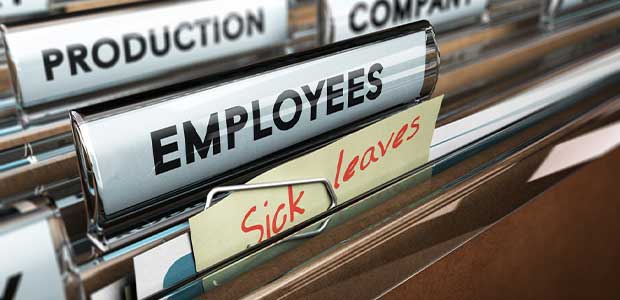
Data shows some Workers Across the United States are not Aware of Paid Sick Leave Protections Due to Coronavirus
Families First Coronavirus Response Act was created to provide federally funded paid sick leave for those sick with COVID-19.
- By Shereen Hashem
- Sep 08, 2021
Workers with COVID-19 can take paid emergency leave—at least for now. The U.S. is one of the only developed nations without universal sick leave. The problem is that less than one half of workers in America know it’s available, according to a new study. Researchers add that cases of sick employees who couldn’t take time off work have tripled during the pandemic.
"When the government does not ensure that people have access to paid sick leave, people go to work sick," said study author Nicolas Ziebarth, an associate professor at Cornell University's Jeb E. Brooks School of Public Policy. "And when you have a virus going on – it could be the flu or coronavirus, it doesn't really matter -- then the sick people at work infect coworkers who go on to infect other people."
In March of 2020, the U.S. government introduced the Families First Coronavirus Response Act (FFCRA) in order to provide federally funded emergency paid sick leave due to COVID-19. After analyzing data, researchers found that between October and December of last year, eight million U.S. workers took advantage of paid leave in the policy’s first six to eight months. According to an article, the study found that part-time and foreign-born workers were most likely to be unaware of the program. Awareness of the COVID-19 sick leave was especially low among service and hospitality workers. Women had a 69 percent higher risk of unmet sick leave needs than men, suggesting universal paid leave can improve gender equity, according to Ziebarth.
"One reason the unmet needs for women is so much higher is that they are overrepresented in the hospitality and service industries," Ziebarth said in a university news release. "Another is that women tend to have a higher burden of work. They are still more likely to be the primary caregiver for children and have to balance paid work, chores and child care."
Ziebarth also mentioned that providing paid sick leave has more benefits than one may think. If an infection spreads to kids in the household, and they go to school, disease spreads rapidly.
"The point is that you have more virus infections in the population, which is bad for population health," Ziebarth said.
His team’s findings were recently published in the journal Proceedings of the National Academy of Sciences.
About the Author
Shereen Hashem is the Associate Content Editor for Occupational Health & Safety magazine.